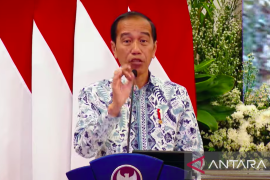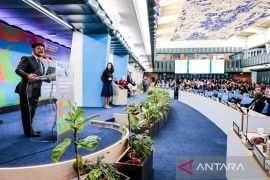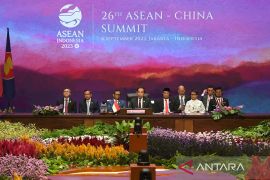"If the government does not anticipate the potential global food crisis we fear it will turn into a wild ball that may put the life of the nation particularly farmers on the line," Soksi Chairman Ade Komarudin said at the parliament building here.
He was responding to the Food and Agriculture Organization (FAO)`s warnings that the world is dangerously close to experiencing a new food crisis. The warnings came amid concern over the rising inflation in China and India and other emerging economies.
FAO warned last year that food prices could even be higher in 2011. The Rome-based agency predicted last year that the bill for international food imports was expected to reach USD1.026 trillion by the end of the year. The bill reached an all time high of USD1.031 trillion during the 2008 food crisis.
Komarudin said the world was currently under the threat of declining food production due to climate change.
FAO has predicted global food production will fall by up to 5 percent in the period 2009-2015. The global food prices have of late risen by up to 35 percent with the wheat price jumping by up to 50 percent, raising worries the price hikes will have a double effect.
The global rice prices are also on the increase. Rice is currently sold at US$500 per ton in Thailand and even US$875 per ton in California.
"The global food price hikes will have a direct impact on the national food stocks because of the people`s high dependence on imported food stuffs," he said.
Soksi noted that the prices of basic necessities such as rice, cooking oil, egg, sugar and wheat flour rose by Rp2,000-Rp3,000 a kg at traditional markets in the first week of January 2011.
"The increase in the prices of basic necessities and food stuffs will deal a serious blow to the people particularly those in the low-income bracket. This is particularly because the poor families` spending on food serves as a great chunk of their total spending," he said.
He said the recent food price hikes in the country were caused not only by the extreme climate change but also by a lack of the government`s priority to develop the agricultural sector.
In the long run, the organization urged the government to pay serious attention to rice self-sufficiency program by among others increasing productivity, creating more farmland, and adopting strategy to safeguard production, he said.(*)
Editor: Jafar M Sidik
Copyright © ANTARA 2011











